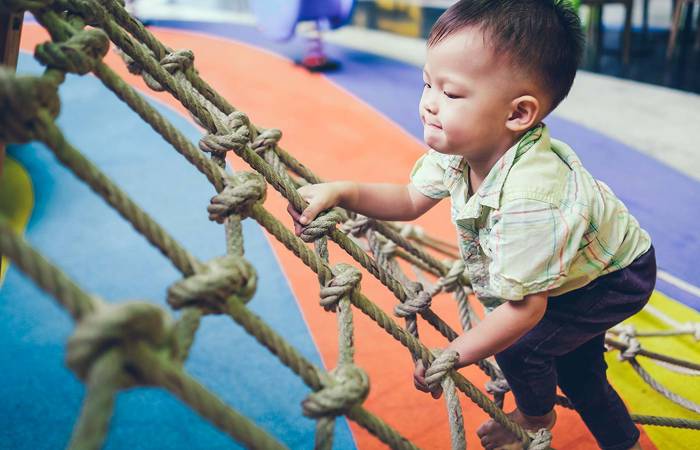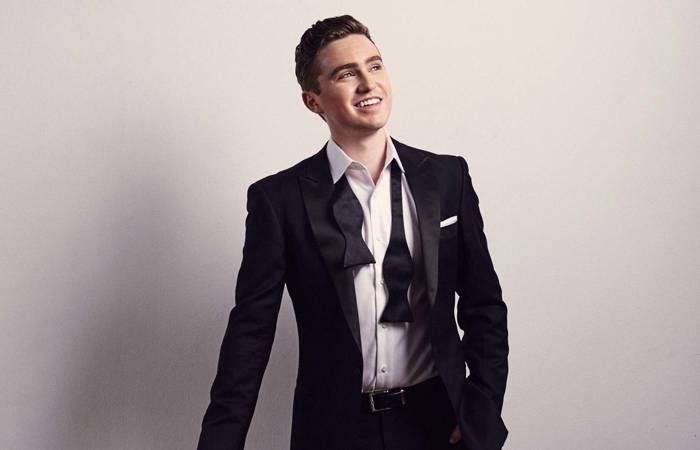Like what you see?
Sign up to receive more free parenting advice.
Thank you for subscribing to our newsletter!
Early Learning

Credit: iStock.com/lostinbids
If you’ve ever watched the intense concentration (or wild abandon) during a musical recital by a group of preschoolers, or cheered from the sidelines as an over-eager gaggle chase down a soccer ball, you’ll understand the appeal for parents. But what is the true value of sport and music for under 5s?
Research consistently demonstrates1 that music is good for children. Musical training sharpens the brain’s early encoding of sound, boosting performance on a range of listening skills. This in turn contributes to better verbal memory, language skills and literacy. To date the evidence suggests that benefits are enhanced when training starts early (before the age of seven) and continues over a long period of time.
The Australian 24-hour Movement Guidelines for the Early Years (Birth to 5 years) recommend at least 180 minutes spent in a variety of physical activities, of which at least 60 minutes is energetic play, spread throughout the day. The preschool years are marked by dramatic improvements in specific motor skills. Children develop fundamental skills such as running, throwing and catching through activities that emphasise fun, play, exploration and experimentation that build into childhood and adolescence.
The best way to introduce music and sport to your children is at their request. Children need to be agents in this space because that will enhance motivation, as well as participation that continues over a long time.Dr Rebecca English
Start informally with lots of fun and games
Dr Rebecca English, Lecturer at Queensland University of Technology’s School of Teacher Education and Leadership, says the best results come from starting informally with a lot of fun and games and building on those skills.
“The best way to introduce music and sport to your children is at their request,” Dr English says.
“Children need to be agents in this space because that will enhance motivation, as well as participation that continues over a long time.”
Dr Robert A. Cutietta, Dean of the University of Southern California Thornton School of Music, says informal activities with music should start soon after birth, followed by more systematic classes around age three, and lessons with the goal of learning an instrument between six and nine. He warns however that these are only guidelines and exceptions occur based on the child or teacher.
Dr English says the age of music and sports introduction are often determined by the spaces in which you enrol your child.
“Music schools often have an early childhood program that leads to a more serious and rigorous program of musical instruction,” she says.
“My children, for example, started at a music school at the age of one and did the children’s class, then the older children’s class where they played games, but also learned the Solfege notes. Now they’re are doing their piano, and in my seven year old’s case, the violin as well.
“Dr Cutietta also suggests that the earlier you start, the more likely the child is to enjoy the practise of music, to appreciate music and to be committed. That intrinsic motivation they also get from sports.
“Due to the risk of injury, sports instruction (as opposed to informal play) usually starts at around the age of three. And, the options are virtually endless.
“My oldest tried gymnastics at walking age, the age of enrolment at the gym nearby, but hated it.
“Mostly, she struggled to follow the instructions of her teacher and didn’t like being barked at when she couldn’t coordinate her left arm and her right leg. So, we changed her to circus, which offers many of the same skills and she loved it.
“The earliest they can do circus is three years of age, so that’s consistent with the other sports. But shop around and listen to testimonials. If what other parents say about the activity is consistent with your beliefs about early learning, that’s a good sign.
“The age that’s right for your child will depend on the sport and the child.
“Children struggle with turn taking and delayed gratification so it can be hard for them to participate in sports where they are expected to understand and follow structure, rules and have independent thinking.
“Dr Peter Gray, Ph.D., a research professor at Boston College says informal sports are superior to formal ones in the early years and teach lessons that cannot be taught as well, by adult-directed formal sports. These include playing well and having fun, modifying rules, keeping everyone happy and settling conflicts.
“The best kinds of sports are informal and at the children’s behest. To start sports too early may establish negatives in that it entrenches in-and-out group thinking, deference to rules that are set by others and may lead to conflict.
“It also means that children do not learn the value of the skill and the joy of playing, rather just the joy of winning.”
Parents shouldn’t focus on the child’s perfect playing of their instruments, but focus instead on commitment, ensuring children learn the value of perseverance and hard work.Dr Rebecca English
Be aware of the physical and psychological milestones for success
Dr English says parents also need to be aware of the physical and psychological milestones that need to be met for success before considering starting their child on instrumental music rather than simply music for enjoyment.
“For example, to play the cello a child needs not only the ability to read the music and remember the finger positions, but also the physical strength and stamina to hold the instrument, put the fingers in the right position and hold or move them as needed to bow the instrument. And, the child needs to be able to do all these at the same time!
“While piano is a frequent early instrument, there are still physical readiness signs that are needed. Can the child sit upright and still without leaning on their left hand? Can they hold their wrists up? Can they reach between do (middle C) and so (G)? Can they hold down the right combination of keys to make a chord?”
As children begin to participate in sport and music, parents may begin to wonder how much encouragement or praise they should be offering their children.
“Sport has a different set of associations. When we think about praise in sport, we often think about the parent yelling inappropriate, and sometimes chiding comments, at the child from the sideline,” Dr English says.
“There’s been a lot of media reporting about inappropriate parent behaviours in relation to sports. A study Parental involvement in competitive youth sport settings found that there was a connection between parents’ goals and their praise from the sidelines.
“There was both positive praise and negative comments and these influenced the child’s willingness to continue with the activity.
“The focus has to be on the efforts the child has invested in the activity or the quality of their learning.”
The role of praise
Dr English says when it comes to music the role of praise depends largely on the age and stage of the child’s musical instruction.
She says a paper on Applying Research in Motivation and Learning to Music Education argues that the important role of praise is in the child’s perception of their abilities.
“Parents shouldn’t focus on the child’s perfect playing of their instruments, but focus instead on commitment, ensuring children learn the value of perseverance and hard work."
And for those who believe you have to be born with talent to be a musician or sportsperson, Dr English says the talent versus hard work dichotomy is as old as the nature versus nurture debate.
“There is that old ‘hard work beats talent when talent doesn’t work hard’ chestnut,” Dr English says.
“The American Music Institute suggests there are three skills needed to be successful at music, these are dedication, passion and determination. None of these require talent.
“With both music and sport, there is a place for talent or natural ability, such as having long legs if you’re going to be a hurdler for example, or fast-twitch muscle fibres if you’re going to be a bodybuilder, powerlifter or drummer or having long fingers for piano or cello.
"There’s an equally important place for practise but other factors are also important. Do you have a supportive family? Do you have a practise space? Are you in a place where you can focus on your practise or are you constantly thinking about other things or being interrupted? Do you have an understanding mentor who can help you reach your goals? Those questions are significant, and perhaps more so than talent or natural ability.”
1 The power of music: a research synthesis of the impact of actively making music on the intellectual, social and personal development of children and young people. January 2015 ISBN 978-1-905351-31-2 Publisher: iMERC Author, Susan Hallam.






